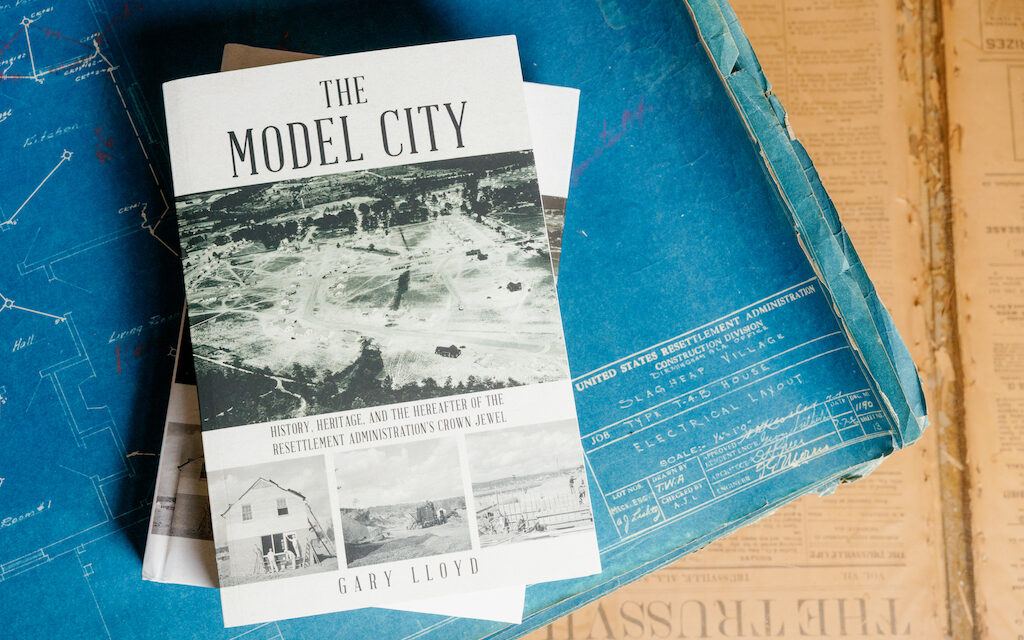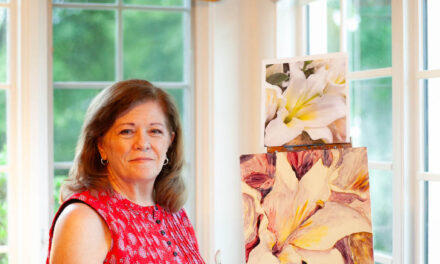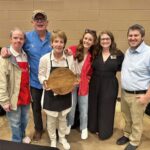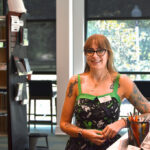By Katelyn Smith
Photos by Kathleen Ivy
In the wake of the darkness left behind by The Great Depression, President Franklin D. Roosevelt’s New Deal sought to give economic relief to those still suffering. In Jefferson County, a site in Trussville was chosen to develop a homestead with 287 housing options, and it remains standing today.
Known first as Slagheap Village, the Cahaba Project still houses residents of Trussville, but many may not understand its historical significance.
Gary Lloyd is an author and journalist, who is a lifelong resident of Trussville and is very passionate about the history and meaning behind the town he loves. Through his new book, “The Model City: History, Heritage, and the Hereafter of the Resettlement Administration’s Crown Jewel,” he hopes to teach his readers about an essential piece of Alabama history that still shapes Trussville’s residents today.
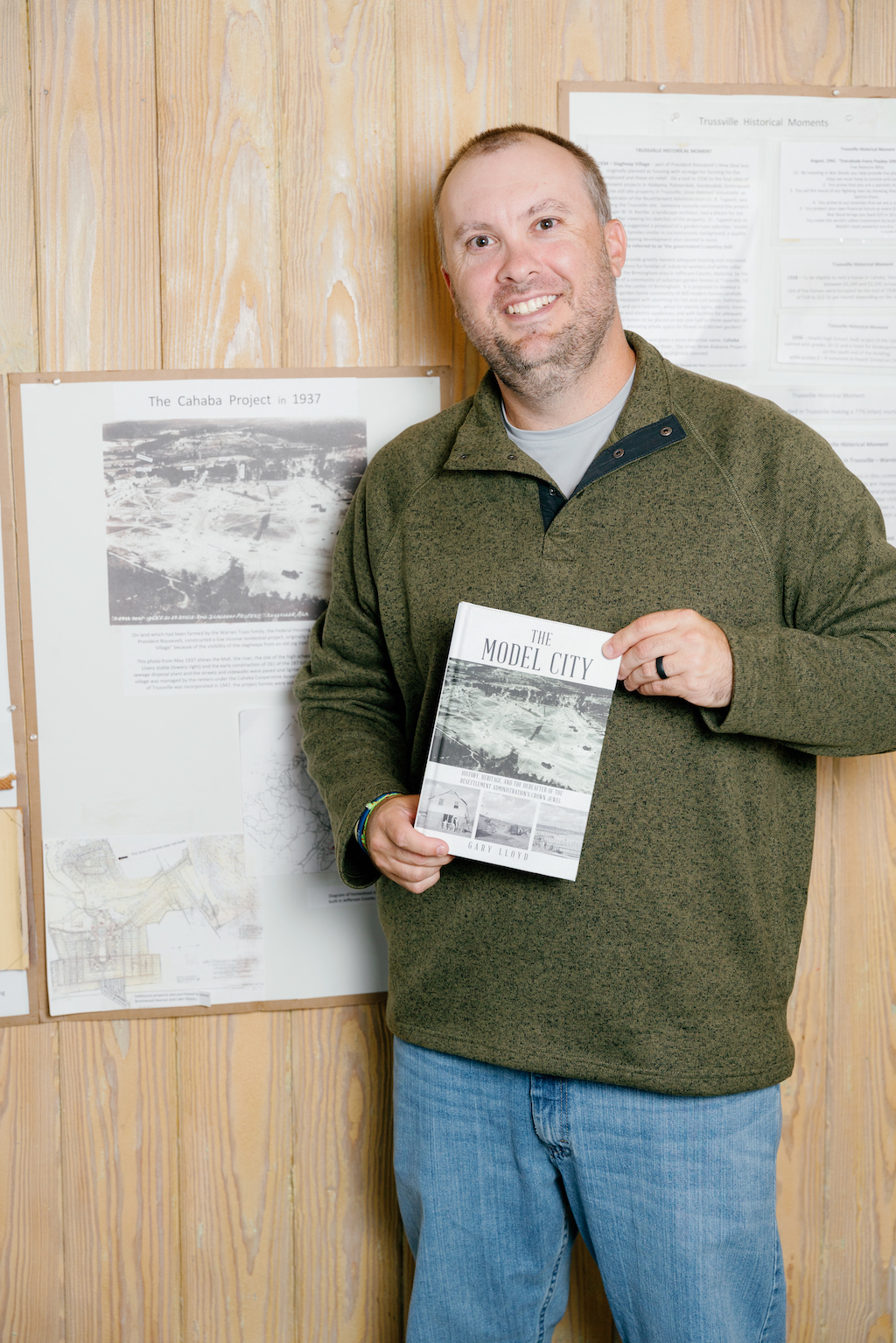
In 2021, after becoming involved with the Cahaba Homestead Heritage Foundation, a nonprofit organization that promotes and educates people about the Cahaba Project, he had an idea to write a heavily researched book detailing the complete history of the property.
“I was like, ‘I really want to dive really, really deep into the history of this place so that we can truly educate people on why this place came about, why it’s laid out the way it is,’” Lloyd recalled, reflecting on when he first had the idea.
He officially began writing the book in 2022 and spent the first year completely immersed in the project’s history. He would spend hours, sometimes six or eight, in the archives room of the Trussville Public Library researching everything he could find.
Lloyd also spent a significant amount of his time interviewing people, including residents of Trussville, for the book; although, he did not have the opportunity to interview as many people as he would have liked. Many people have had connections to the Cahaba Project and while living in Trussville, have been directly affected by it.
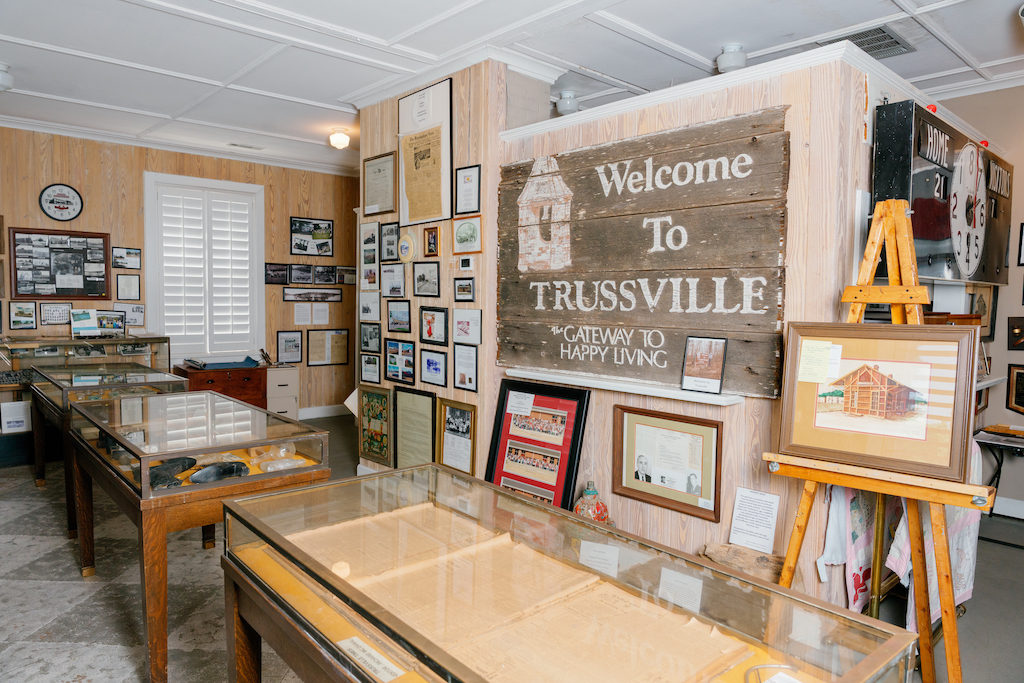
“If I were to interview every single person that I wanted to or could, it would be hundreds and hundreds and hundreds of people,” he explained. “And this book, that’s probably close to 500 pages, would probably be like 2,000 pages, and I would never finish.”
His favorite part of the extensive research was traveling to Warm Springs, Ga., the place where Roosevelt, the man behind the New Deal that created the Cahaba Project, spent a lot of time and eventually died. There, he got to talk to a historian about Roosevelt’s influence on the New Deal and Trussville.
“That, to me, was probably the coolest thing because I’ve lived in Trussville forever, and I love hearing people’s stories here for sure,” Lloyd said. “But, it was cool to tie in something that obviously really tied into the book and actually be able to travel somewhere else to do it.”
The book is divided into three parts: History, Heritage and The Hereafter. The history section details when the Cahaba Project merged with Trussville and how FDR’s New Deal catalyzed this development.
The heritage part is “the meat of the book,” as Lloyd called it. This section focuses on nostalgia, people’s stories, memories and how certain aspects of the city came about.
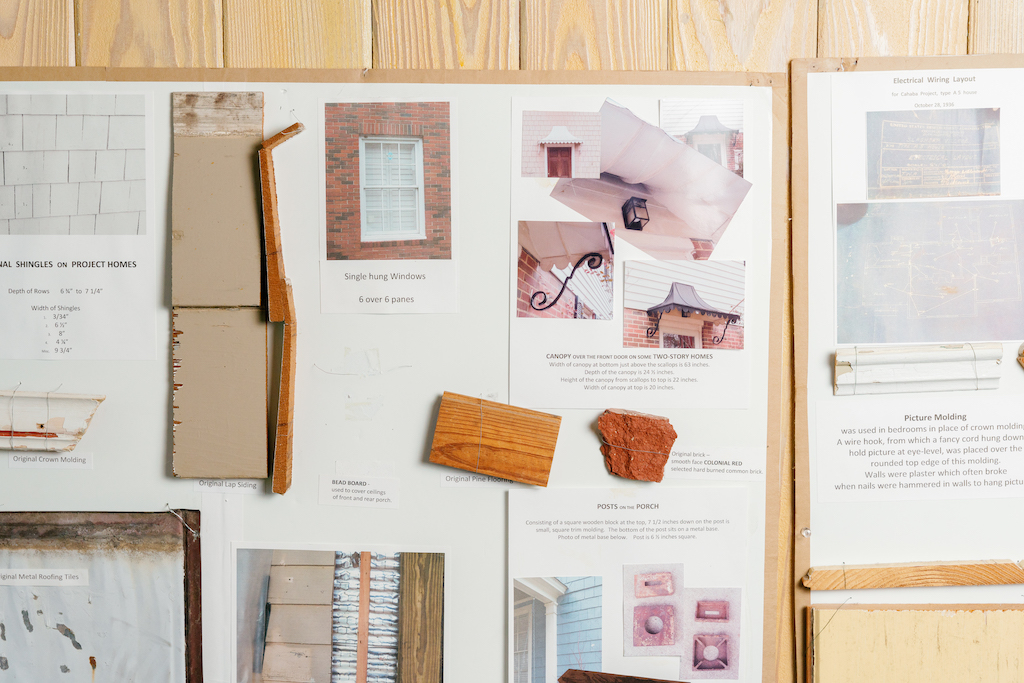
The final section, the hereafter, is about the conflict between 2017 and present day. It highlights the vulnerability of the historic, harmonious homes in the Cahaba Project, as well as the fact that some have been demolished.
“That kind of ends the book,” Lloyd said. “I’ve laid out the history; I’ve told you how important the place is, that kind of thing. Now, this generation is grappling with ‘What do we do with that history?’”
Although this is now his seventh published book, Lloyd was not always an author. He started out as a journalist.
After graduating from Hewitt-Trussville High School in 2006, he attended the University of Alabama, where he earned a degree in journalism in 2009. After graduation, he worked for numerous publications in Alabama and Mississippi as a reporter and editor, with a focus on sports writing.
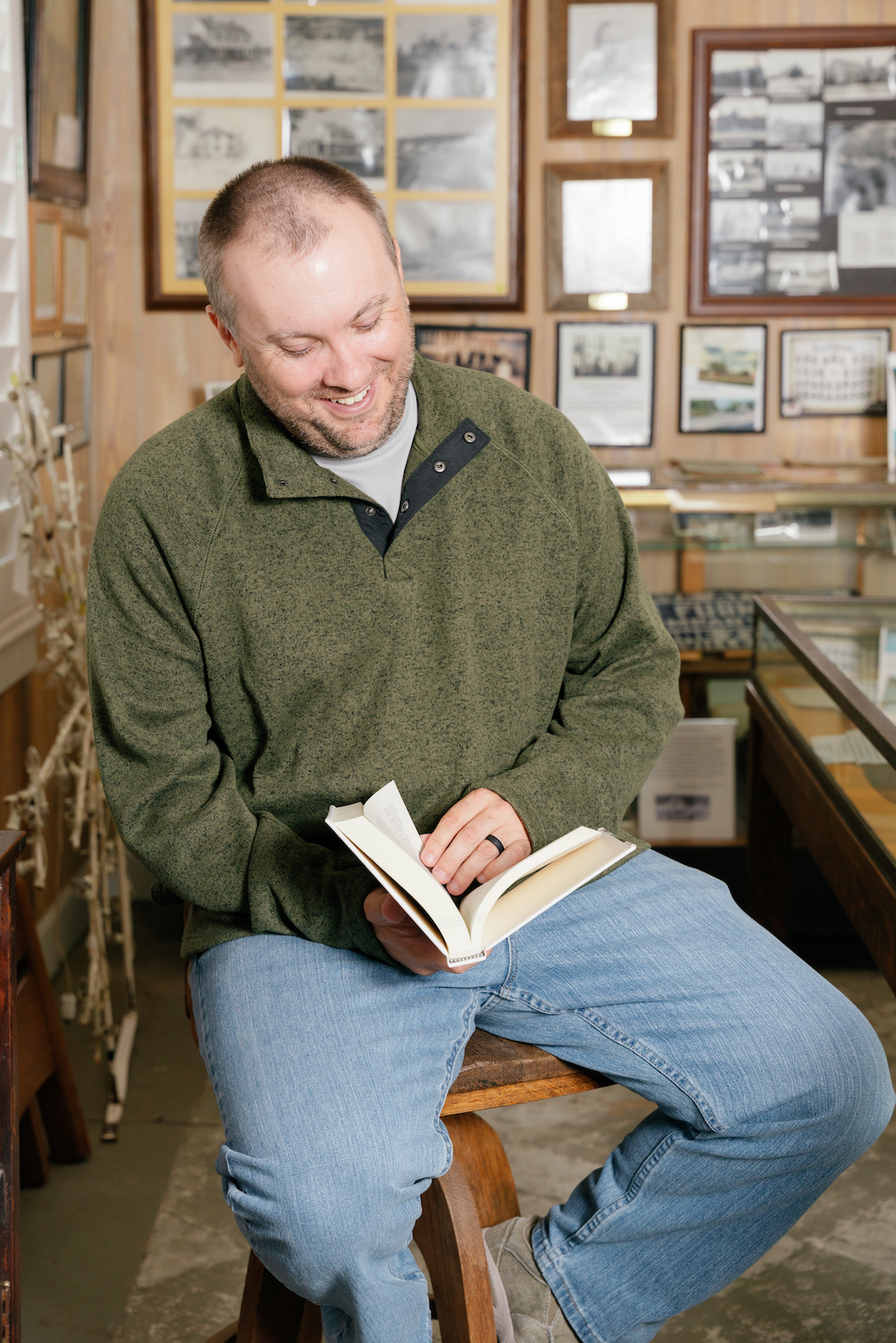
In 2012, while still working as a full-time journalist and editor for a newspaper, he received an email from a publishing company asking if he knew any historians who could write a book on the history of Trussville. Although he had never written a book, he jumped at the opportunity and said that he could write it, as he had always wanted to write one.
He published his first book in 2014, titled “Trussville, Alabama: A Brief History.” This book explained how settlers arrived at the Cahaba River and fell in love with it and how the New Deal initiative, the Cahaba Project, established an entire neighborhood and community that became treasured by residents for years to come.
“The Model City” acts as an extension of his first book, only more in-depth, and he believes that the subject matter affects everyone, not just residents of Trussville.
“Whether you have a direct connection to the Cahaba Project or not, or whether you have a direct connection to Trussville as a whole or not, I think this book does have something for everyone,” Lloyd said.
Since 2014, he has written numerous novels, some of which feature fictional sports stories, while others explore historical or nonfiction topics. His best advice for writing is to avoid sticking to one niche and instead, write about a wide range of topics, something that he has learned over the years.
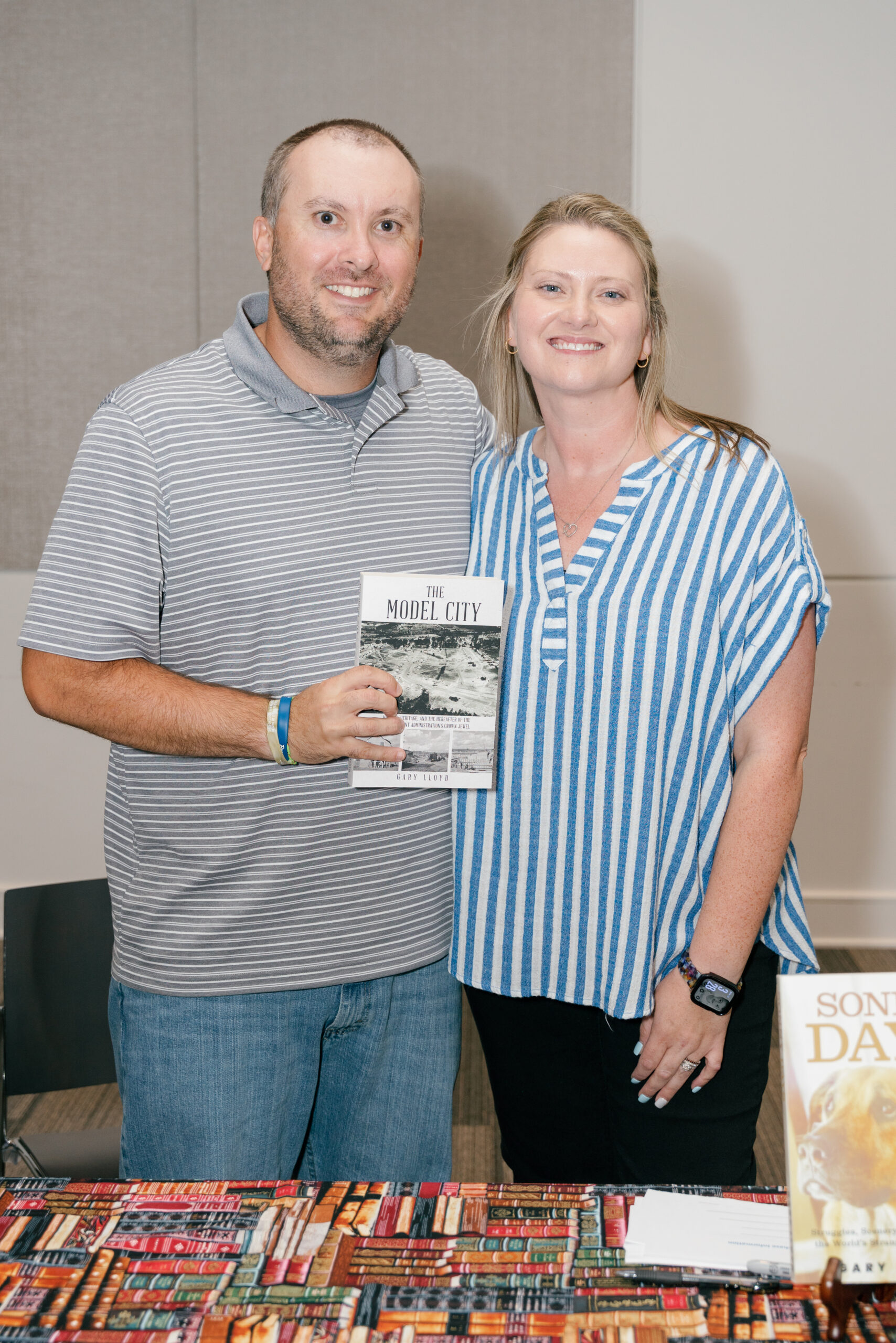
He is also currently working on a new sports book to publish in the next few years.
For now, he is very excited about “The Model City” publishing and hopes that everyone can take something from it.
“The Cahaba Project is not just historically significant to Trussville; it’s not just significant to Jefferson County; it’s not just significant to Alabama. It’s historically significant across the entire nation,” Lloyd said. “It’s one of the most still intact resettlement administration housing developments in the entire United States, and we have it right here.”
Many people drive through Trussville, but they do not understand the vast history and rich heart that lies within it. “The Model City” aims to inspire others to stop, look around, protect and appreciate the community that is still blossoming nearly 90 years later.
For more information on Gary Lloyd and how to purchase his books, visit garylloydbooks.com.
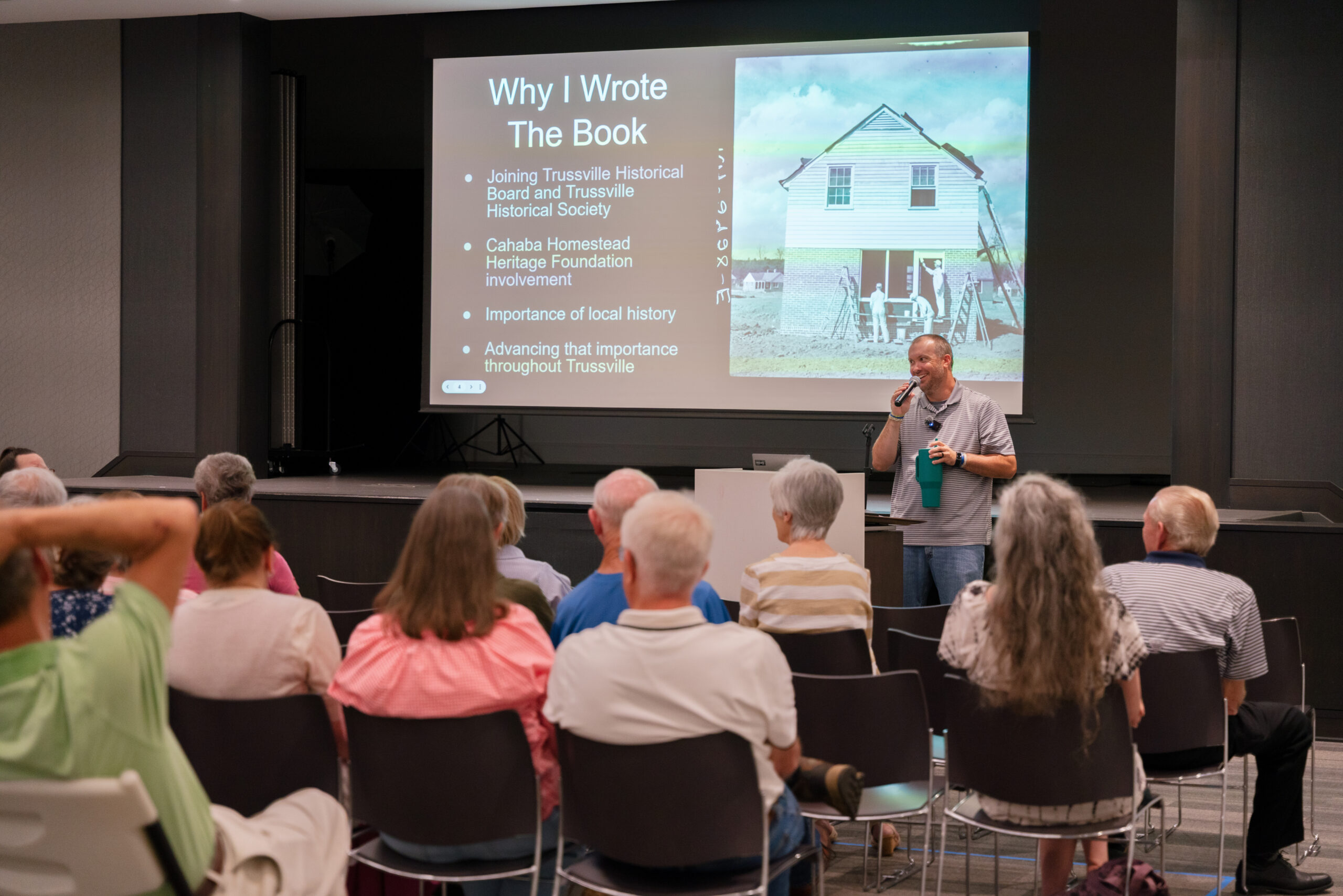 The Writer’s Block
The Writer’s Block
Gary Lloyd has a podcast called “The Writer’s Block” available on YouTube, Spotify, Apple Podcasts and more. He started this in April 2024 and continues to release episodes weekly. He mainly interviews sports figures, such as high school football coaches or players, but this year, he has started interviewing people running for city council or mayor. Check out his podcast for their lighthearted conversations.

